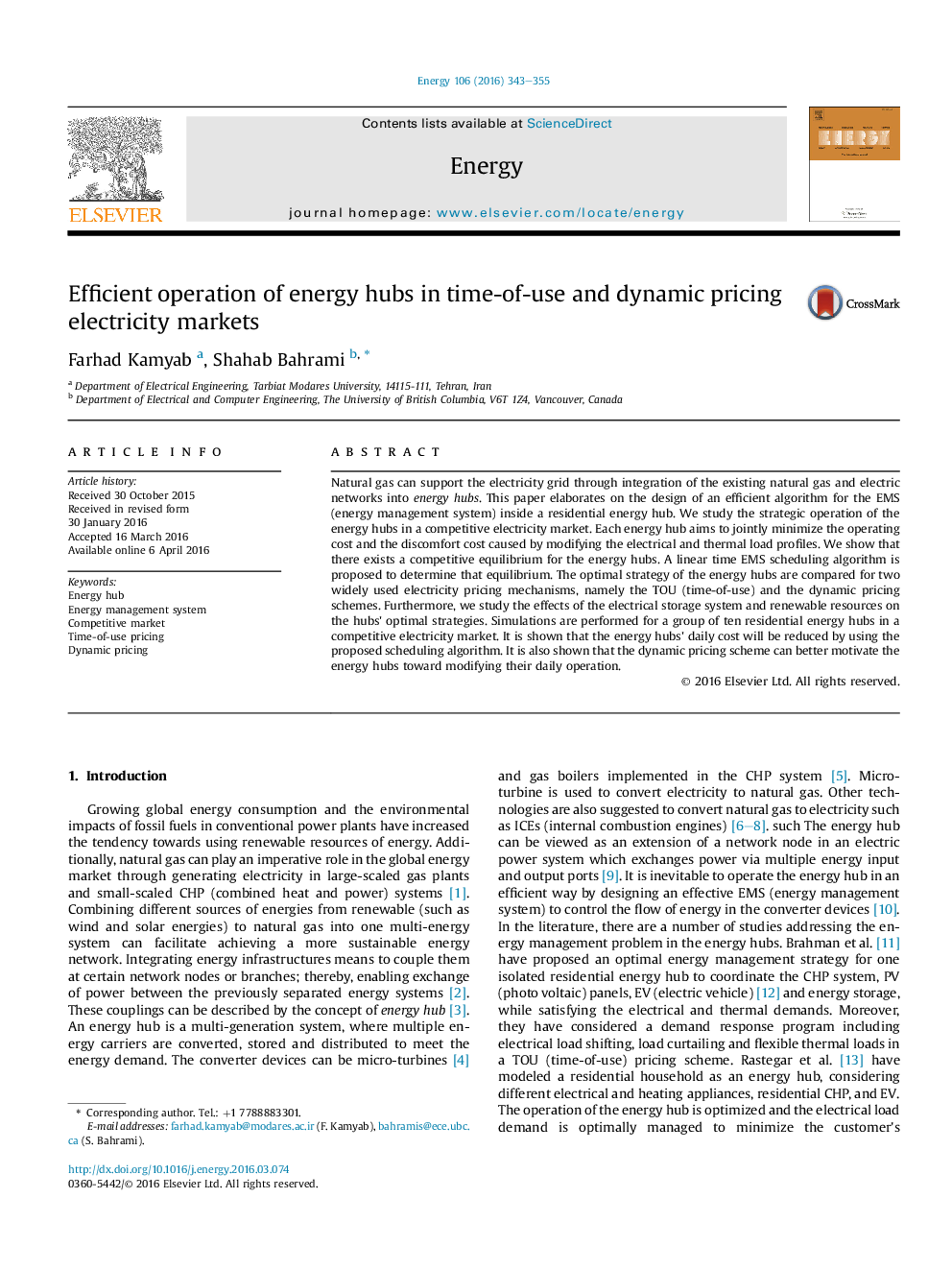| Article ID | Journal | Published Year | Pages | File Type |
|---|---|---|---|---|
| 1730964 | Energy | 2016 | 13 Pages |
•The integration of the electricity and natural gas networks is considered in energy hubs.•The strategic behaviour of energy hubs is studied in a competitive electricity market.•Both time-of-use and dynamic pricing schemes are considered to model the electricity market.•The competitive equilibrium is formulated as an optimization problem.•A distributed algorithm is developed to determine the competitive equilibrium in polynomial time.
Natural gas can support the electricity grid through integration of the existing natural gas and electric networks into energy hubs. This paper elaborates on the design of an efficient algorithm for the EMS (energy management system) inside a residential energy hub. We study the strategic operation of the energy hubs in a competitive electricity market. Each energy hub aims to jointly minimize the operating cost and the discomfort cost caused by modifying the electrical and thermal load profiles. We show that there exists a competitive equilibrium for the energy hubs. A linear time EMS scheduling algorithm is proposed to determine that equilibrium. The optimal strategy of the energy hubs are compared for two widely used electricity pricing mechanisms, namely the TOU (time-of-use) and the dynamic pricing schemes. Furthermore, we study the effects of the electrical storage system and renewable resources on the hubs' optimal strategies. Simulations are performed for a group of ten residential energy hubs in a competitive electricity market. It is shown that the energy hubs' daily cost will be reduced by using the proposed scheduling algorithm. It is also shown that the dynamic pricing scheme can better motivate the energy hubs toward modifying their daily operation.
